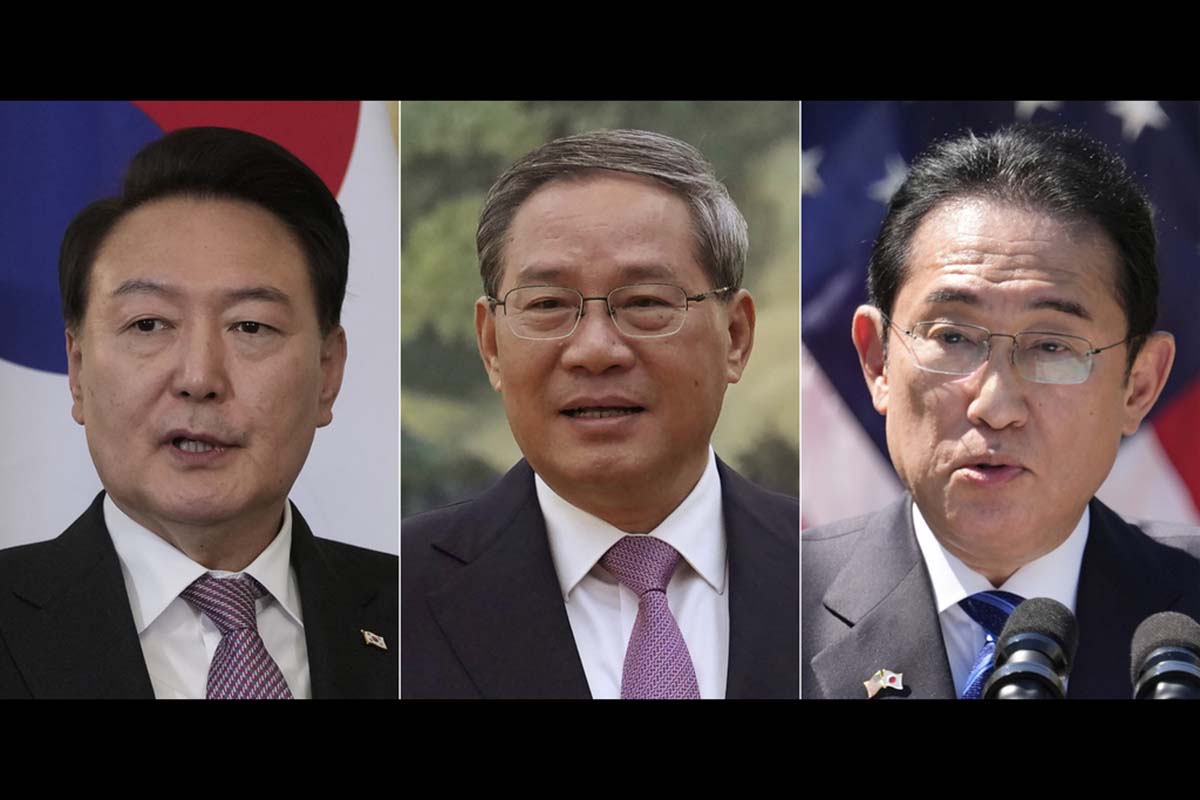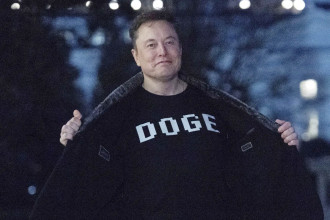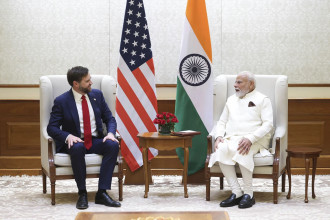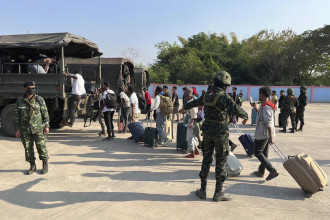
SEOUL: Top leaders from South Korea, China and Japan discussed regional stability in their first meeting in five years on Monday, as they vowed to ramp up three-way cooperation.
The summit brought together South Korean President Yoon Suk Yeol, Chinese Premier Li Qiang and Japan's Prime Minister Fumio Kishida in Seoul for the countries' first trilateral talks in nearly five years, partly due to the pandemic, but also once-sour ties.
While North Korea was not officially on the agenda for the talks, Kishida said after the meeting that the three countries confirmed that its denuclearisation would be in their "common interest".
Hours before the talks, North Korea announced that it planned to put another spy satellite into orbit imminently, which would violate rafts of UN sanctions barring it from tests using ballistic technology.
Yoon and Kishida urged Pyongyang to call off the launch, with the South Korean leader saying it would "undermine regional and global peace and stability."
He also called for a "decisive" international response if Kim goes ahead with his fourth such launch -- aided by what Seoul claims is Russian assistance in exchange for sending arms for use in Ukraine.
"We once again confirmed that North Korea's denuclearisation and stability on the Korean Peninsula are in the common interest of our three countries," Kishida said after the meeting, with Yoon adding that the issue was a "shared responsibility and interest" for the trio.
Analysts say there is significant technological overlap between space launch capabilities and the development of ballistic missiles.
China is North Korea's largest trading partner and a key diplomatic ally, and it has long resisted condemning Pyongyang for its weapons tests, instead criticising joint US-South Korea drills for raising tension.
Chinese Premier Li said in his opening remarks that the three countries were willing "to seek mutually beneficial and win-win cooperation", Xinhua reported.
"Li called for opposing turning economic and trade issues into political games or security matters, and rejecting protectionism as well as decoupling or the severing of supply chains," the news agency said.
Yoon added that the three countries had "decided to create a transparent and predictable environment for trade and investment, and to establish a safe supply chain."
- Tilted diplomacy? -
After their talks, Yoon, Li and Kishida joined a business summit aimed at boosting trade between the countries, which was also attended by top industry leaders.
Experts have warned that, due to the three countries' starkly divergent positions on key issues including Pyongyang's nuclear threats and growing ties with Russia, it is tricky for them to form a consensus on sensitive geopolitical issues.
Yoon, who took office in 2022, has sought to bury the historical hatchet with former colonial power Japan in the face of rising threats from nuclear-armed North Korea.
South Korea and Japan are key regional security allies of China's arch-rival the United States, but are eager to improve trade and ease tensions with Beijing, experts say.
After their talks, the three leaders said they had decided to ramp up three-way cooperation, including holding summits more regularly.
"The trilateral cooperation system should be strengthened. We have decided to hold trilateral summits on a regular basis," Yoon said.
President Xi Jinping is China's top leader, with Li serving under him as premier.
Nuclear-armed North Korea successfully launched its first reconnaissance satellite last November in a move that drew international condemnation, with the United States calling it a "brazen violation" of UN sanctions.
Seoul said on Friday that South Korean and US intelligence authorities were "closely monitoring and tracking" presumed preparations for the launch of another military reconnaissance satellite -- which could come as early as Monday, according to the launch window Pyongyang gave to Tokyo.
"North Korea, China, and Russia have effectively claimed that launching reconnaissance satellites does not breach UN Security Council sanctions imposed on Pyongyang," Yang Moo-jin, president of the University of North Korean Studies in Seoul, told AFP.
"However, considering China's involvement, it appears the North will likely hold off on any launches during the trilateral meeting, convened after a significant break, in deference to Beijing's stance."
By RSS/AFP





